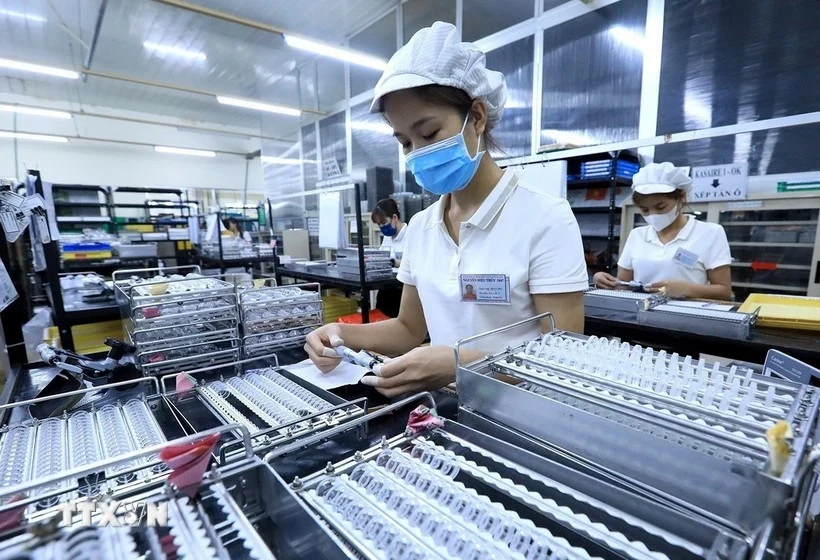FDI flows strongly into manufacturing, real estate
Vietnam’s industrial real estate industry is expected to continue its strong growth trajectory due to foreign direct investment (FDI) inflows benefiting from tax incentives.

Vietnam’s industrial real estate industry is expected to continue its strong growth trajectory due to foreign direct investment (FDI) inflows benefiting from tax incentives.
According to the General Statistics Office (GSO), the total FDI disbursed in Vietnam in the first four months of this year reached an estimated 6.28 billion USD, up 7.4% year on year, the highest four-month amount in the past five years.
The processing-manufacturing sector saw the largest amount at 4.93 billion USD, accounting for 78.5% of the total FDI disbursed in the country in the period. It was followed by real estate business at 607.6 million USD, accounting for 9.7%.
Increasing FDI inflows have contributed to synchronising and modernising transportation infrastructure facilities and improving ancillary services in industrial parks (IPs) across the nation. Many new IP investment projects have been given in-principle approval.
Logistics and industrial sectors in many localities also benefit from the expansion of large manufacturers.
In Ho Chi Minh City, the logistics sector has experienced positive growth, with investment capital primarily focusing on the construction and development of ready-built factories and warehouses.
In the retail sector, consumer demand for retail experiences has driven real estate developers to upgrade shopping centres. High-end and well-managed projects continue to attract increasing attention of investors.
According to General Director of Cushman & Wakefield Trang Bui, as a developing nation, Vietnam is expected to become a centre in the global production chain for many corporations in the future.
Vietnam boasts great potential to develop the semiconductor industry as it possesses a young workforce with an innovative mindset bolstered by training in relevant fields, she noted.
Nguyen Hoai An, Senior Director of CBRE Vietnam in Hanoi, said to maintain its status as a destination for foreign investment in the region, Vietnam needs to pay more attention to improving the quality of infrastructure facilities and labour force, and making adjustments to incentives.
Deputy Minister of Planning and Investment Do Thanh Trung said Vietnam is increasingly perfecting its legal system, mechanisms, and policies to improve the investment and business environment, building attractive investment incentive mechanisms for technology companies and conglomerates, including those specialising in semiconductor and electronic chip industries.
He also underlined the necessity to develop high-tech zones to provide the best conditions for foreign businesses to invest and produce in Vietnam.
According to the Ministry of Industry and Trade’s Foreign Trade Agency, Vietnam saw a higher volume of new investment capital and equity acquisition transactions in April compared to the earlier months of 2024, especially in localities with significant advantages in attracting FDI, such as Hanoi, Bac Ninh, Quang Ninh, Thai Nguyen, HCM City, and Dong Nai.
As of April 20, total FDI inflows in Vietnam reached over 9.27 billion USD, a year-on-year rise of 4.5%./.








